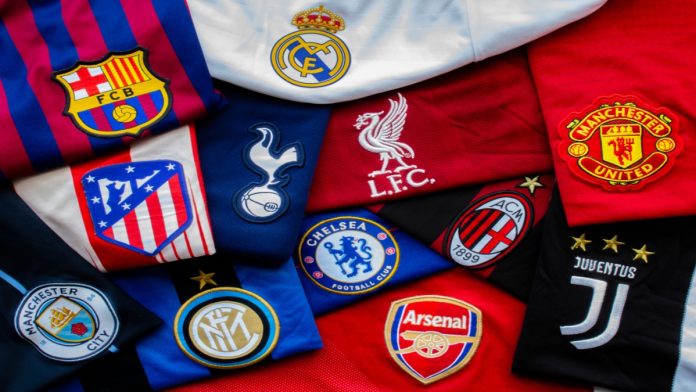The ill-fated European Super League (ESL) is back in the headlines following a ruling against UEFA and FIFA by the European Court of Justice (ECJ).
Announced by 12 top-flight European football clubs in 2021, the ESL project was widely condemned by UEFA and FIFA and perhaps most vocally by the football fanbase.
UEFA and FIFA responded to the project by blocking its formation and sanctioning the clubs involved. The vast majority of teams would later withdraw from the proposal, with LaLiga’s FC Barcleona and Real Madrid and Serie A’s Juventus remaining the only supporters.
However, the ECJ has now ruled that UEFA and FIFA had acted unlawfully and abused their leading positions in continental and global football by doing so, although still added that this does not mean that the ESL will be approved.
The company behind the ESL proposal, A22, is now suggesting a 64-team tournament with promotion and relegation across three leagues – the Star League, the Gold League and Blue League. Sitting below this would be the various national domestic leagues, with winners earning promotion to the Blue League.
Responding to the news, UEFA highlighted the fact that the ruling “does not signify an endorsement or validation of the so-called ‘super league’”, and instead highlights a shortfall within UEFA’s pre-authorisation framework which was addressed in 2022.
“UEFA remains resolute in its commitment to uphold the European football pyramid, ensuring that it continues to serve the broader interests of society,” the authority’s statement continued.
“We will continue to shape the European sports model collectively with national associations, leagues, clubs, fans, players, coaches, EU institutions, governments and partners alike.
“We trust that the solidarity-based European football pyramid that the fans and all stakeholders have declared as their irreplaceable model will be safeguarded against the threat of breakaways by European and national laws.”
Claiming that any legal and technical shortcomings in its framework have now been resolved, UEFA remains confident that its new rules are robust and compliant enough with European laws and regulations that it will remain in good standing in its fight against the ESL.
As mentioned above, 12 clubs were involved in the project – Arsenal, Chelsea, Liverpool, Manchester City, Manchester United, Tottenham Hotspur, AC Milan, Inter MIlan, Atletico Madrid, FC Barcelona, Real Madrid and Juventus, with all subsequently dropping out with the exception of the last three.
Offering a club perspective on the ECJ judgement, Manchester United – which along with the other five English clubs involved, dropped out after an extensive fan backlash including numerous protests – asserted that ‘our position has not changed’.
“We remain fully committed to participation in UEFA competitions, and to positive cooperation with UEFA, the Premier League, and fellow clubs through the ECA on the continued development of the European game,” the club concluded.





















